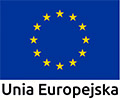Janusz Korczak - Education system
Janusz Korczak was the precursor of the fight for children’s rights. He considered a child to be a human being of standard value from the moment of birth through successive stages of its life. Everyone has the right to be themselves. He formulated his educational views in numerous articles and pedagogical works, among others, How to Love a Child [Jak kochać dziecko], The child’s right to respect [Prawo dziecka do szacunku], Educational Moments [Momenty wychowawcze], The Rules of Life [Prawidła życia], Playful pedagogy [Pedagogika żartobliwa].
According to Korczak, upbringing is first of all care, defence, the duty to protect children from the weaknesses of the surrounding world. He drew attention to the lack of a clear division between upbringing and care. The main goal in Korczak’s education system is to strive for self-education. He was an opponent of the education system based on coercion and rigid principles, strict discipline, and ruled out corporal punishment. According to Korczak, upbringing was supposed to be a creative process of constant search for own effective forms and methods.
Korczak proposed a system of encouragement towards the child, while he was guided by basic pedagogical principles:
- co-management – involving the introduction of the Local Government Council, the Peer Court and the Parliament of Dom Sierot. Through these children’s institutions Korczak gave children the right to communicate with adults in order to establish common rules governing life at Dom Sierot,
- co-hosting – involving self-service of pupils through the on-call system, which operated at Dom Sierot,
- influence of public opinion – it manifested itself in reflections on what duty to entrust to whom, in plebiscites of kindness, court judgements.
Janusz Korczak applied the innovative education system in his own educational practice at Dom Sierot, at Nasz Dom and on summer camps. His educational techniques include self-control and self-esteem.
Korczak’s educational methods:
- a peer court with a code of forgiveness. The code was the “cornerstone” of Korczak’s upbringing. The court was supposed to overcome negative ways of children’s behaviour and seek to correct them, as well as inspire children,
- the local government council was responsible for meeting the needs of co-residents in connection with requests, petitions and regulated cooperation between children and adults,
- children’s parliament – the most important institution of children’s self-government, its task was: confirming or rejecting rights established by the self-government council, making decisions on holidays and important events at Dom Sierot,
- plebiscite of kindness and animosity (+ meant “like”, – meant “don’t like”, 0 – “is indifferent to me”) used among pupils,
- a board for communication with children, on which all notices, announcements and orders were posted. It forced the educator to think about every undertaking, protected against hasty oral decisions, and taught the children patience while waiting for decisions,
- the children’s newspaper Little Review taught planned work, boldness in expressing one’s beliefs,
- the children’s on-call system included: cleaning work, kitchen work, helping the weaker ones, etc.
- the “wardrobe” of things found, where such things as a “book found on the table” were placed,
- a shop that issues certain items free of charge at a certain time of day,
- a letterbox where children put letters with questions, requests, complaints.
An important role in Korczak’s upbringing system was played by a guardian – an educator. A good educator must first get to know himself/herself before he/she wants to get to know the children. The educator should be characterised by diligence, ongoing and constant getting to know the child and understand the child’s world. The educator should put into practice the child’s right to be a child, the child’s right to respect. The primary task of the guardian-educator is to support the development of the child. Korczak made children co-responsible for the outcome of upbringing, putting them on an equal footing with adults. He emphasised the mutual influence of children and adults on each other. He drew attention to the important role of parents in the upbringing process and appealed to them to be more interested in the experiences of their children.
Thanks to innovative educational methods, Nasz Dom and Dom Sierot became real homes for orphaned and abandoned children. It replaced a family home to them. Korczak’s educational system was applied in Poland, Israel and many other countries. Korczak himself became a pioneer and creator of a new direction in childcare pedagogy.
Bibliography:
- W. Okoń, Wizerunki sławnych pedagogów polskich, Warsaw 1993.
- M. Falkowska, Myśl pedagogiczna Janusz Korczak – Nowe źródła, Warsaw 1983.
- A. Szlązakowa, Janusz Korczak w legendzie poetyckiej, Warsaw 1992.





